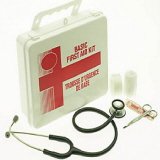|
FertilitySecrets from,OpenMind and What You Should Know
Open Mind FertilitySecrets discusses the problem when sometimes couples want children but can’t get pregnant. This is called “infertility.” FertilitySecrets discusses this problem. Infertility is the inability to conceive or carry a child to delivery. The term is usually limited to situations where the couple has had intercourse regularly for one year without using birth control. The term sterility is restricted to lack of sperm production or inability to ovulate. Approximately 40% of reported cases of infertility are due to problems in the male; another 40% to problems in the female; the remaining 20% are of unknown cause or due to problems in both the male and female. Fertility Secrets from Open-Mind-Publishing Click for more infomation from the Doctors Wife 
What should I do if I don’t get pregnant within a year? You should see a doctor if you do not get pregnant after a year of having sex without using birth control. In some cases, you may need to get help even before a year is up. At what age does it get harder to get pregnant? It is harder to get pregnant for women who are age 30 or older. A woman’s chance of getting pregnant takes a big drop around age 40. You may not want to wait a whole year to see a doctor if you are over 30. You may want to get tested sooner. What Men Should Know. Do men lose their fertility at the same age as women? Men don’t make as much sperm after age 25 as younger men do. Some men keep making lots of sperm into their 60s and 70s. Can men have infertility? Yes. Men can be infertile too. For example, a man may make no sperm or too few sperm. What affects a man’s sperm? Men need to get enough rest and eat healthy food to make enough sperm. Men who are under a lot of stress might not make healthy sperm. Alcohol and drugs can also hurt a man’s sperm. Cigarettes and some medicines can affect sperm. Chemicals can affect a man’s sperm.
FertilitySecrets suggests men who want to have a child should not wear tight underwear. They should not use hot tubs or saunas. All of these things may lessen the number of healthy Are there tests to check fertility? Yes. A doctor can look at a man’s sperm under a microscope to see how many sperm he has and how healthy they are. A home test can find out if a woman is ovulating every month. A couple should go to a doctor or clinic if: The woman isn’t having regular periods. This could mean that she is not ovulating. The woman has lost a baby (miscarriage) three or more times. The man has had three or more miscarriages with another partner. The woman has had pelvic infections or the man has had mumps or a prostate infection. The woman or man did not get pregnant with another partner. For further information on Fertility Secrets from the Doctors Wife click to read more
FertilitySecrets,The Causes of Infertility.
Infertility can be caused by any interruption in the usual process of fertilization, pregnancy, and birth, which includes ejaculation of normal amounts of healthy sperm, passage of the sperm through the cervix and into the fallopian tube of the female, passage of an ovum (egg) down the fallopian tube from an ovary, fertilization in the fallopian tube, implantation of the fertilized egg in a receptive uterus, and the ability to carry the foetus to term. In women, the most common problems are failure to ovulate and blockage of the fallopian tubes. In men, low sperm count is the most common problem. FertilitySecrets understands that the number of couples seeking treatment for infertility has increased as more of them have postponed childbearing to a later age. In women, fertility begins to decline in the mid-twenties, and continues to decline, more and more sharply, until menopause. Male fertility declines gradually until age forty, and then declines more quickly. Return from FertilitySecrets to Open-Mind-Publishing Home Page
|





 All About Fertility
All About Fertility







